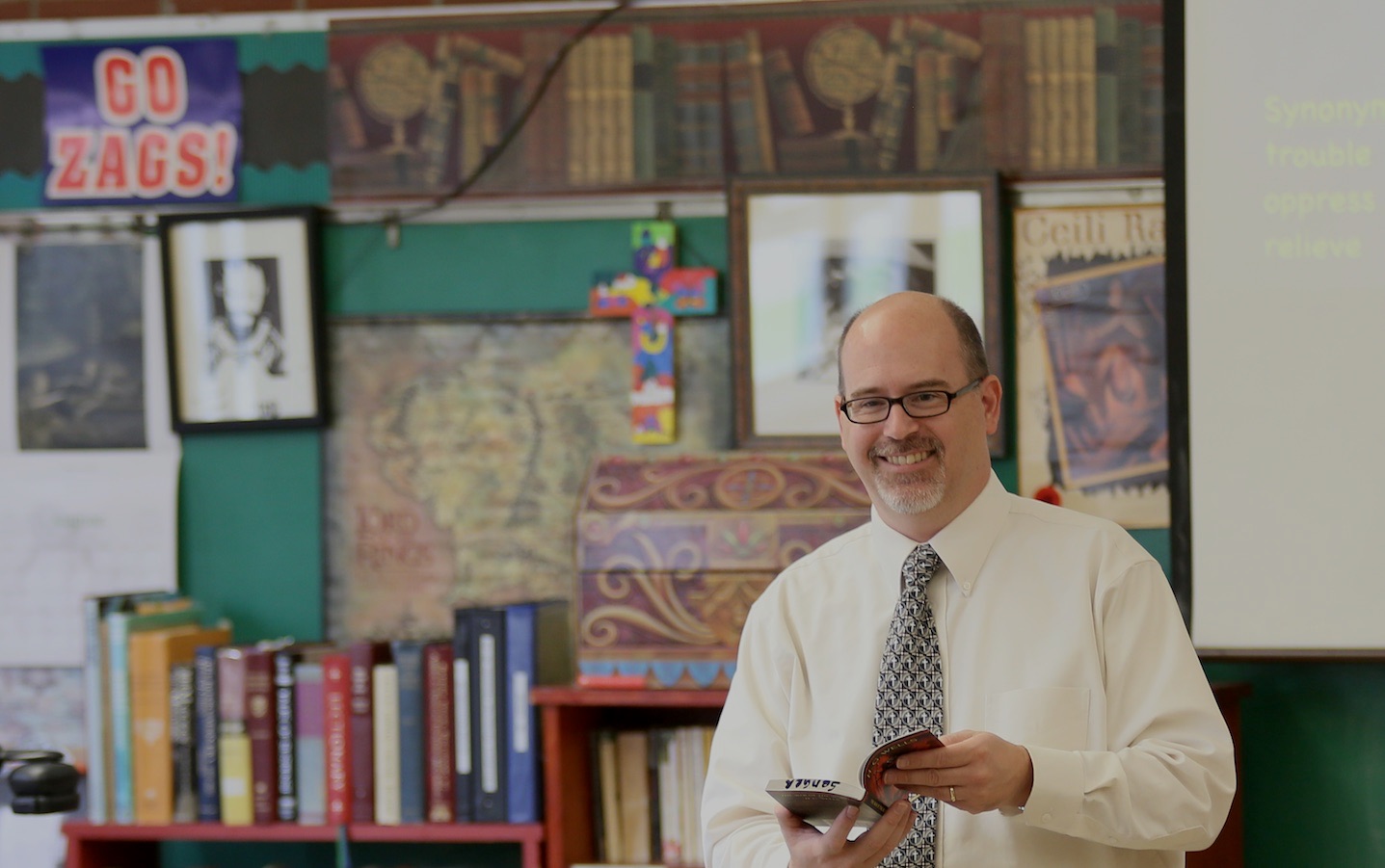
As a new school year approaches, teachers everywhere are preparing lesson plans, bulletin boards and handouts. This kind of professional preparation is important for a strong beginning to another cycle of teaching. However, it’s also important to prepare spiritually for the work that’s about to take place. One way to ready one’s soul for teaching is to meditate on the virtues of good teachers, honestly looking at how we can improve during the next nine or ten months.
Brother Luke Grande of the Christian Brothers has written Twelve Virtues of a Good Teacher, which is actually an update of a text that has been around since at least 1785. His book, which seems now to be out of print, walks the reader through twelve virtues that Christian teachers ought to strive for. As he explains in the preface, the twelve virtues are based on a list drawn up by St. John Baptist De La Salle in the early eighteenth century. Through the years, succeeding generations of Christian Brothers elaborated on and modified the list according to the particular needs of their time. In 1956, the Christian Brothers Education Association asked for “a fresh explanation of the the Twelve Virtues,” and Brother Luke’s book is the result.
As an aid to preparing for the new school year, I’d like to offer some of Brother Luke’s words on each of the virtues followed by a few questions for reflection.
Wisdom
“With the vision attained through wisdom, the teacher can see how he himself fits into God’s plan, how his students fit into it as well, and how the whole complex of education helps to accomplish God’s design.”
- How do I fit into God’s plan?
- How do my students fit into God’s plan?
- How does education accomplish God’s design?
Prudence
“General preparation for class is not enough. Prudence and experience underlie the necessity of day-to-day preparation of classes. If the teacher knows exactly what he is supposed to be doing, he will cut his discipline problems in half, he himself will be more confident as a result, and an atmosphere of study with direction and purpose will have a good chance of developing.”
- How well do I plan for each day’s lessons and activities?
- Do some of the discipline problems I face come from lack of preparation?
- How can I better prepare my classroom to have “an atmosphere of study with direction and purpose”?
Piety
“…in being a practical, living example of Christian piety, the teacher as teacher best gives God His due and provides students with an ideal of piety to emulate. But, anomalously, when the teacher turns his eyes away from God and looks at himself to see whether or not he is being a good example to the students, his piety become calculation and he fails on both counts–as dutiful creature and living example.”
- How am I working toward being a “practical, living example of Christian piety”?
- Have my religious practices become routine?
- Am I too concerned with how my religious practices appear to others?
Zeal
“Every good teacher must share in this universally Christian spirit of apostolicity which we call zeal. Zeal leads him to try, with great love and devoted energy, to further God’s glory and to take all the steps conducive to this end….A teacher who is not interested in teaching is a contradiction. If he has the love of God and a high ideal, he must express both through striving, through an effort to bring all to God, but especially the students that come within his sphere.”
- Do I consider myself an apostle?
- Could my work be described as being done with “great love and devoted energy”?
- How do I try to further God’s glory?
Next time I’ll offer Brother Luke’s thoughts on generosity, justice, kindness and firmness.
